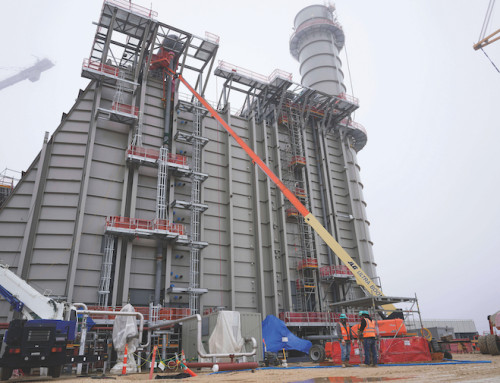ATLANTA (AP) — It seems like an unfavorable time to build an electric-vehicle plant in the United States, but Rivian Automotive leaders say they’re confident as the company starts long-delayed work on a $5 billion facility in Georgia.
The money-losing California-based company broke ground this week east of Atlanta despite President Donald Trump’s successful push to roll back electric-vehicle tax credits. Starting Sept. 30, buyers will no longer qualify for savings of up to $7,500 per car.
Rivian Chief Policy Officer Alan Hoffman said the company believes it can sell electric vehicles not for environmental or tax incentive reasons, but because they’re superior.
“We did not build this company based upon federal tax incentives,” Hoffman said. “And we’re going to prove that we’re going to be successful in the future.”
Analysts say the Georgia plant, first announced in 2021, is Rivian’s key to reaching profitability.
Now the company makes the high-end R1T pickup truck and the R1S sport utility vehicle in Normal, Ill., as well as delivery vans for Amazon and others. Its truck prices start at $71,000.
The Illinois plant will begin making smaller R2 SUVs next year, with prices starting at $45,000. An expanded Illinois plant will be able to assemble 215,000 vehicles yearly.
If the R2 is a hit, however, and if Rivian successfully produces an even smaller R3, it will need more capacity.
The company has said the Georgia operation will be able to make 200,000 vehicles yearly starting in 2028. It plans another 200,000 in capacity in phase two, volume that would spread fixed costs over many more vehicles.
The projections would be a big leap from the 40,000 to 46,000 vehicles Rivian expects to deliver this year, down from 52,000 last year. The company says it’s limiting production now in part to launch 2026 models.
“For Rivian, it’s do-or-die time,” said Alex Oyler, North American director of auto research firm SBD Automotive. “We saw with Tesla that the key to profitability is scale, and you can’t scale if your cheapest vehicle is $70,000. So they need that plant online to achieve a level of scale of R2 and ultimately R3.”
Sales growth is slowing for electric vehicles in the United States, rising only 1.5 percent in 2025’s first half, according to Cox Automotive.
Tesla accounted for almost 45 percent of the country’s electric-vehicle sales in that period, according to Cox, but the giant is losing market share as others gain: General Motors’ slice of American EV sales has climbed to 13 percent.
By comparison, Rivian had a 3 percent share in the first half of the year, behind Tesla and six traditional automakers.
Excluding Tesla, however, Rivian is the most successful of the startup automakers.
The company initially tapped a largely unfilled niche: demand for electric pickups and SUVs, but the competition now includes Ford’s F-150 Lightning and the electric Chevrolet Silverado.
After an initial public offering in 2021, Rivian shares have fallen by more than 80 percent, while automaker shares overall have outpaced the broader stock market. Rivian lost $1.66 billion in 2025’s first half.








